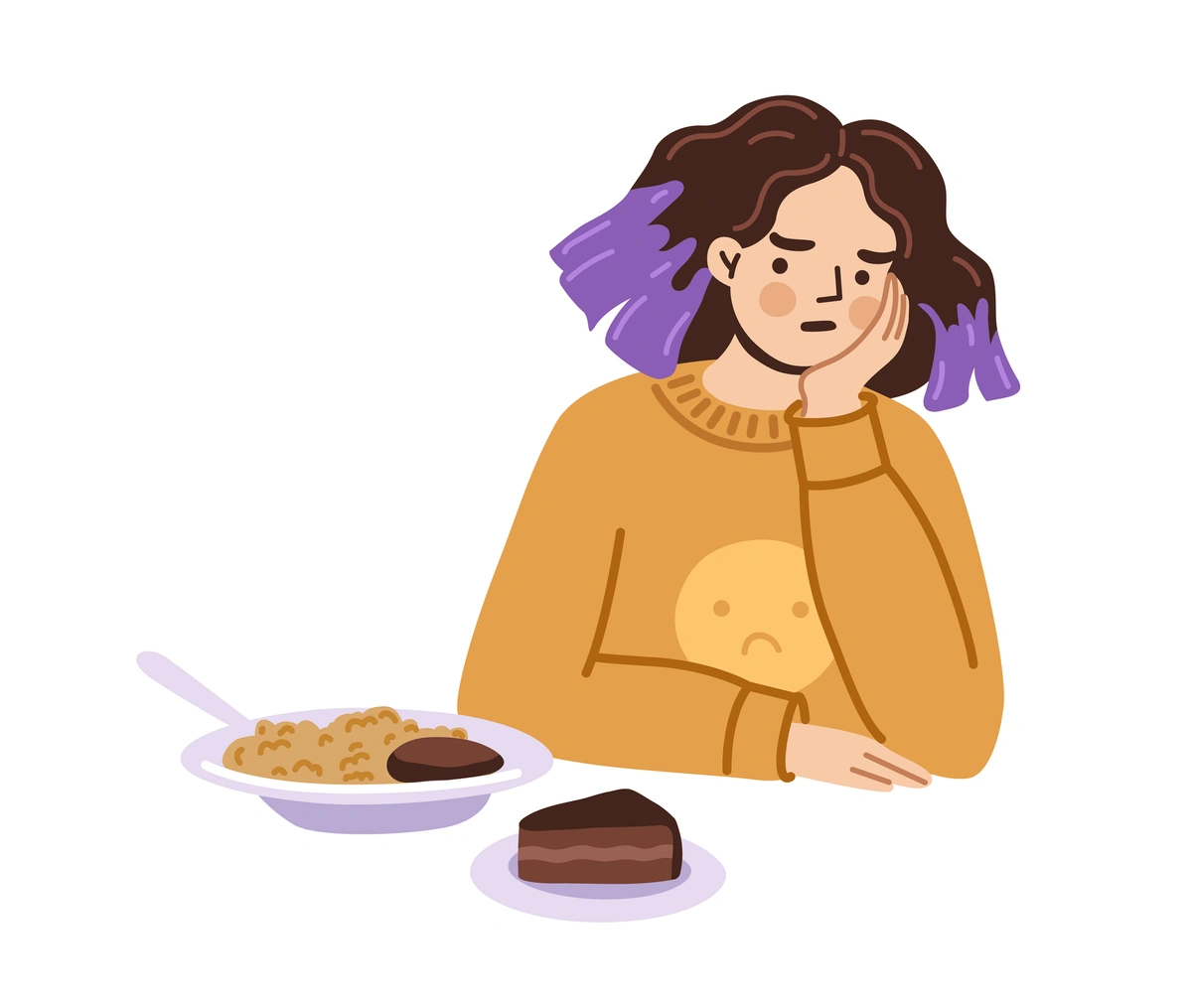Other Eating Disorder (OSFED/UFED)

Other Eating Disorder (OSFED/UFED)
Other Eating Disorder (OSFED/UFED) is unique in that it refers to two categories of condtions, as opposed to a single disorder. Other Specified Feeding or Eating Disorder (OSFED) and Unspecified Feeding or Eating Disorder (UFED) are appropriate when an individual is experiencing several symptoms associated with an eating disorder, and those symptoms are causing them significant distress or impairments in their daily life, but they don't meet the full criteria for any other specific feeding/eating disorder. Together, OSFED and UFED were previously referred to as Eating Disorder – Not Otherwise Specified (ED-NOS).
What it looks like
With OSFED, the clinician states why the individual does not meet the criteria for a specific feeding or eating disorder. For example, the condition OSFED - Bulimia Nervosa of low frequency indicates that the individual meets all the criteria for bulimia nervosa, except for the frequency requirement. Other common examples of OSFED include Atypical Anorexia, Bulimia Nervosa - low frequency or limited duration, Binge Eating Disorder - low frequency or limited duration; Purging Disorder; and Night Eating Syndrome.
Individuals with OSFED often have co-occurring substance use disorders along with other compulsive/impulsive disorders. They also tend to struggle with depression, anxiety, and self-harming behaviors. The health consequences of eating disorders in the OSFED category can be just as severe as disorders that meet the full criteria for anorexia nervosa, bulimia nervosa, and binge eating disorder.
With UFED, there may not be enough information to make a diagnosis but eating and/or body image issues are still significant enough to cause distress or impairment in an individual’s daily life. UFED often stands as a temporary diagnosis until someone can be formally evaluated. In MindMetrix, we support your provider in assessing you further by noting which type(s) of behaviors - restricting, bingeing, or purging - were endorsed. The long- and short-term consequences of undiagnosed and untreated UFED are as severe and life threatening as specified eating disorders.
For additional information, visit NEDA - OSFED and NEDA - UFED.
Outlook
Living with recurrent OSFED or UFED can present unique obstacles and finding the best treatment can take many attempts. Early intervention, along with the proper treatment can dramatically improve one’s quality of life.
Who can develop an eating disorder?
A common myth is that eating disorders most affect young Caucasian girls. However, eating disorders do not discriminate among socioeconomic status, race, religion, age or even gender. An individual with an eating disorder could be one's next-door neighbor, one's co-worker, or even one's child. In addition, an elementary school student, adolescent, teen, young adult, middle-aged adult—or perhaps an aging parent.
- OSFED and UFED are the most common eating disorders with an estimated 32% to 53% of all individuals with eating disorders.
- Studies have shown that individuals with the OSFED and UFED diagnosis experience eating pathology and medical consequences that are just as, if not more, severe than individuals who have received the diagnosis of anorexia nervosa, bulimia nervosa or binge eating disorder.
- A total of 75% of individuals with OSFED or UFED have co-occurring psychiatric disorders and 25% have endorsed suicidality.
- OSFED and UFED do not discriminate when it comes to marginalized populations.
What causes eating disorders
Eating disorders can be linked to the cultural environment, genetics, and/or triggers. The cultural environment includes social media, diet trends promoted as “healthy,” and society’s focus on physical appearance vs. inner worth. Family environment can also contribute to eating disorders including high expectations, perfection, lack of structure in the family, split family. Possible genetic components of eating disorders include biologic and innate brain chemistry, along with family history of depression, anxiety, eating disorders and/or substance abuse.
Medical complications
Eating disorders have the highest mortality rate of any mental illness and can affect every cell, tissue, and organ in the body. OSFED and UFED can result in anemia, low thyroid and hormone levels, low potassium and slowed heart rate. Also, dental problems such as enamel erosion, cavities, and tooth sensitivity can occur. In addition, muscle weakness, poor wound healing and impaired immune functioning may result.